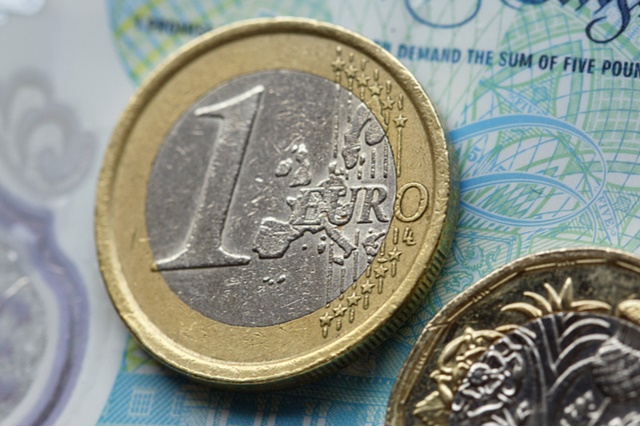Pound Sterling Euro (GBP/EUR) Exchange Rate Muted as German Manufacturing Jumps to 13-Month High
The Pound Sterling Euro (GBP/EUR) exchange rate remained flat this morning, leaving the pairing trading at around €1.1946.
Flash German PMI data revealed that the German economy experienced moderate growth in February.
The PMI composite edged down slightly from January’s figure of 51.2 to 51.1. Growth was driven by the service sector while the country’s ailing manufacturing sector edged closer to stabilisation.
Activity continued to expand despite reports of falls in exports and sentiment that has been linked to the outbreak of Covid-19.
Commenting on this, Principal Economist at IHS Markit, Phil Smith noted:
‘February’s ‘flash’ PMI results show that the German economy managed to eke out another marginal increase in business activity, despite a fresh setback to exports in the wake of the outbreak of the coronavirus.
‘The manufacturing PMI defied expectations in February to move to its highest in 13 months. Though there were positive contributions from all five components, the observed jump in the headline index flatters the sector’s current trajectory, with longer input delivery times stemming from disruption to supply chains in China having an unduly positive effect.’
Meanwhile, the single currency edged up slightly after Eurozone flash PMIs were higher than expected.
Markit’s Chief Business Economist, Chris Williamson said:
‘While the February survey data are welcome news in a month in which media headlines have been dominated by fears of economic growth being hit by the COVID-19 outbreak, the full immediate impact may not yet be apparent.’
Sterling (GBP) Flat as UK Manufacturing Jumps to 10 Month High
Meanwhile, flash British PMI data revealed the country saw the fastest manufacturing output growth since April 2019.
Added to this, the data showed February saw the joint-fastest expansion of private sector output since September 2018.
This provided Sterling with a slight upswing of support, although better than expected Eurozone PMIs buoyed EUR, leaving the pairing flat.
According to Duncan Brock, CIPS Group Director:
‘As more immediate political instability receded into the background, the combined sectors delivered a healthy return in February with the joint-strongest performance since September 2018. Manufacturing was the sector to experience faster growth as output rose to its highest for almost a year and new orders increased at a pace not seen since March 2019. However, the services sector took a small backward step.
‘With these new challenges unfurling at the beginning of the year, 2020 is unlikely to be a quiet year for the UK economy. The results of trade negotiations are still unknown and now this black swan event to contend with, manufacturers and service providers will be kept on their toes, having to react and forecast outcomes as best they can.’
Pound Euro Outlook: Will Weak German Data Send EUR Lower?
Looking to the start of next week, the Euro (EUR) could suffer some losses against the Pound (GBP) following the release of further German data.
If Ifo reveal February’s business sentiment in the bloc’s largest economy slumps further than expected, the single currency will fall.
Meanwhile, Tuesday could see EUR extend its losses following the release of Germany’s final GDP growth data.
If German GDP stagnates in the final three months of 2019, the Pound Euro (GBP/EUR) exchange rate will edge higher.


Comments are closed.